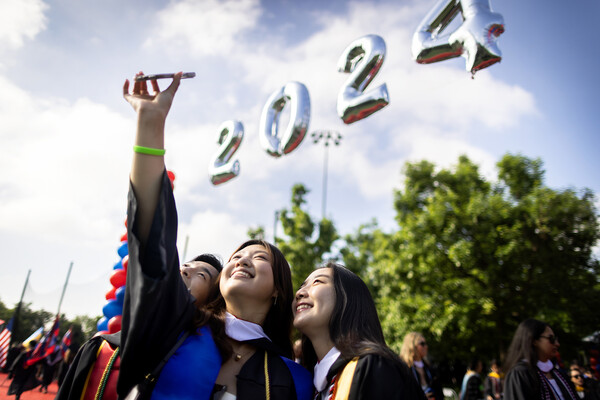Annenberg aims to clean up election campaigns
H.G. Wells once described elections as the feast of democracy. "Sadly, most Americans have come to think of them as junk food," said Annenberg School for Communication Dean and Professor of Communication Kathleen Hall Jamieson.
Armed with a recently awarded $3.75 million grant from The Pew Charitable Trusts, the Annenberg School will attempt to reverse the downward-spiraling trend of negative political campaigning by establishing new criteria for a more responsible campaign climate.
Attack ads and sound bites. Increased cynicism and decreased voter turnout. Choices between bad and worse candidates. These have become the realities of modern-day discourse in the election process, according to Jamieson.
The project to increase the quality of campaign discourse will facilitate a research team of 10 graduate students and 30 undergraduate students focusing on this year's gubernatorial campaigns in 10 states: California, Florida, Illinois, Minnesota, Iowa, Colorado, Texas, Arizona, Maryland and Oregon. The Pew grant will be spread out over three years. A key component of the project calls for voluntary contributions of free air time from broadcasters to present candidates' views in 1998 campaigns.
"We're hoping to accomplish at the state level what we accomplished at the national level in 1996," Jamieson said. "We're trying to provide systematic evaluation of the campaign discourse and launching efforts to change the climate in which the campaign occurs to increase candidate accountability to the electorate."
The existing Campaign Mapping Project, was referred to as a success in the current project's proposal. Between 1995 and 1997, it collected roughly 15,000 campaign texts, developed major content analytic tools, pilot-tested them, conducted approximately 300 print and broadcast interviews, made more than two dozen presentations to academic audiences and began publishing findings.
In addition to attempting to redefine the campaign climate, the project will disseminate its findings to educate candidates, consultants, the media, government groups and scholars.
The project proposal acknowledges that attaining free broadcast time will be "extremely difficult to impose by legislation, given the broadcast industry's clout on Capitol Hill, and given the correct perception of Congress that free time is more beneficial to challengers than to incumbents," according to Jamieson.
"Mandatory free time, always a worthy goal, will always be an uphill struggle."







